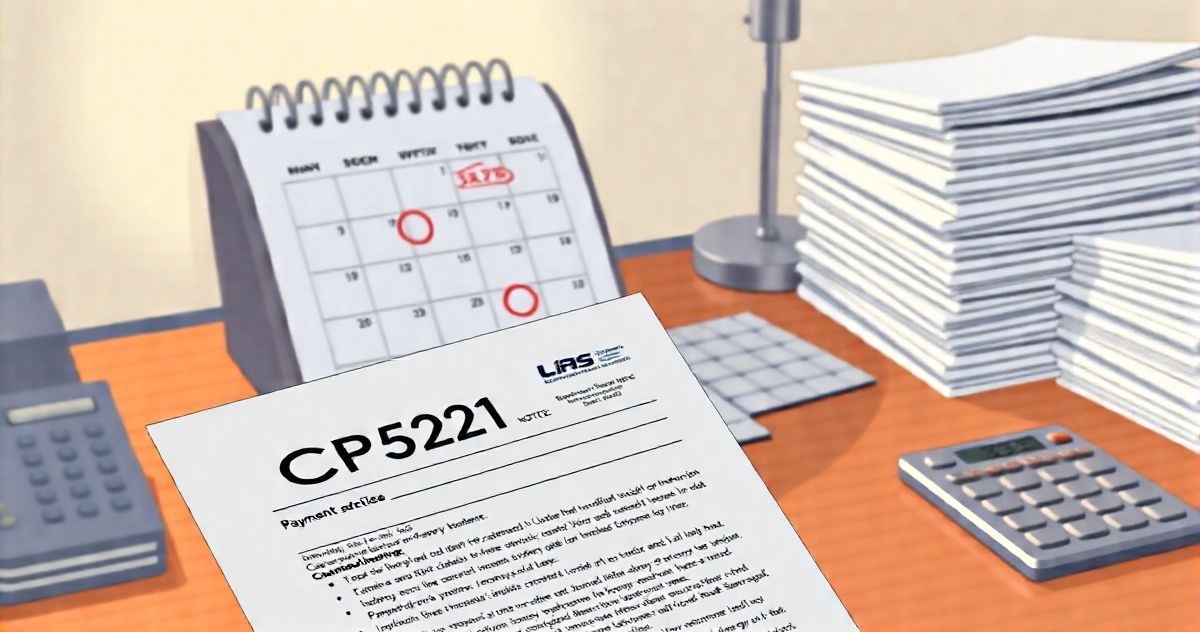What is the CP521C Notice?
The CP521C Notice is an official communication from the Internal Revenue Service (IRS) alerting taxpayers about the specifics of their payment plan or installment agreement. The primary purpose of this notice is to provide taxpayers with detailed information about the amount due on their installment plan, the due date for these payments, and any related terms or conditions. It serves as a critical reminder for taxpayers to adhere to their agreed-upon payment schedule to avoid defaulting on their obligations.
Key Features of the CP521C Notice
The CP521C Notice comprises several key components that are crucial for taxpayers to understand:
- Payment Information: The notice details the specific amount that the taxpayer is required to pay for that period. It includes the total amount due, the installment agreement number, and the precise due date by which the payment must be received by the IRS.
- Terms and Conditions: It outlines the terms of the installment plan, including any interest or penalties that may accrue if the payments are late. This helps taxpayers be aware of the financial implications of missing or delaying payments.
- Payment Methods: The CP521C provides information about acceptable payment methods, which generally include electronic payments, direct debits, and checks. Clear instructions are often provided to ensure that taxpayers know exactly how to submit their payments to avoid mishaps.
- Consequences of Default: The notice highlights what might happen if a payment is missed or if the taxpayer fails to comply with the agreement terms. Understanding these consequences is vital for taxpayers to avoid additional penalties or potential enforcement actions.
Relevant Compliance Requirements
Taxpayers who receive the CP521C Notice must comply with several ongoing obligations to maintain their standing with the IRS:
- Timely Payments: Taxpayers must ensure that they make each payment by the due date specified in the notice. Late payments can lead to penalties, interest, and potentially a default of the agreement.
- Maintaining Tax Compliance: While under an installment agreement, taxpayers must remain compliant with all filing and payment requirements for the duration of the agreement. This means timely filing all future tax returns and timely paying all future taxes owed.
- Additional Notifications: If a taxpayer is facing financial hardship or requires adjustments to the payment plan due to unforeseen circumstances, they must notify the IRS promptly to discuss potential options for adjusting their agreement.
Penalties and Consequences for Non-Compliance
Failing to adhere to the terms of a CP521C Notice installment agreement can lead to various detrimental effects:
- Revocation of the Plan: Non-payment or late payment may result in the IRS terminating the installment agreement. This can cause the entire outstanding balance to become due immediately, exacerbating financial strain.
- Additional Penalties and Interest: The IRS may impose additional penalties and interest on the remaining tax balance, significantly increasing the total amount owed.
- Enforcement Actions: Defaulting on an agreement may initiate enforcement actions by the IRS, such as levies, garnishments, or liens on assets, to recover the owed amount.
Importance of the CP521C Notice in Tax Resolution
The CP521C Notice is a critical tool in tax debt resolution and financial compliance:
Facilitating Payment Plans: It enables taxpayers to manage their tax liabilities through structured payment plans, allowing them to alleviate immediate financial burdens by spreading payments over time.
Preventing Accumulation of Debt: By providing regular reminders of payment schedules and compliance requirements, the CP521C helps taxpayers avoid accruals of additional debt through late fees and penalties.
Taxpayer Accountability: Regularly receiving and responding to the CP521C Notice holds taxpayers accountable to their repayment commitments and ensures ongoing communication with the IRS, which is crucial for maintaining good financial standing.
Overall, the CP521C Notice serves as a guidepost for taxpayers navigating installment agreements with the IRS. Properly understanding and responding to the notice is essential for avoiding complications and effectively managing tax obligations.

